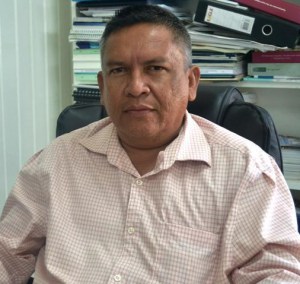Belize City, Wednesday, (CRFM)–Fisheries experts from across the Caribbean region are traveling to Guyana this week for the 14th Meeting of the Caribbean Fisheries Forum — the primary technical deliberative body of the Caribbean Regional Fisheries Mechanism (CRFM). The Forum will be meeting in Georgetown on Thursday, 7 April and Friday, 8 April to undertake its annual stocktaking and planning for the fisheries and aquaculture sector.
The event will bring together more than 50 participants, including directors of fisheries, chief fisheries officers, and other development partners, such as NGOs and international organizations like the UN Food and Agriculture Organization, which work with the CRFM in promoting the development, management and conservation of the Caribbean’s fisheries resources.
 Justin Rennie, Chief Fisheries Officer of Grenada, will demit chairmanship of the Forum to Denzil Roberts, Chief Fisheries Officer of Guyana, for the 12-month period spanning the new program year which commenced on 1 April. A new vice chairman will also be selected.
Justin Rennie, Chief Fisheries Officer of Grenada, will demit chairmanship of the Forum to Denzil Roberts, Chief Fisheries Officer of Guyana, for the 12-month period spanning the new program year which commenced on 1 April. A new vice chairman will also be selected.
CRFM Executive Director, Milton Haughton, highlighted the most pressing issues on the agenda: “We’re discussing a lot of emerging issues in the region. We are looking at how to improve conservation and management of key species, apply and use the value chain approach in order to increase benefits, such as increased income and export potential. We are discussing sanitary and phytosanitary capacity as a part of our overall strategy to strengthen our trade capacity, so that we can indeed export more to key international markets and also to provide greater quality and safety in terms of the fish and seafood that we provide for our people as well as our guests and tourists coming into the region.”
Haughton added that the 17 CRFM Member States are also looking at ways to strengthen the linkage between fisheries and tourism, “because the tourism sector is a huge sector and we believe we have a golden opportunity to enhance the linkages between fisheries and tourism to derive more benefits—more income, more employment opportunities–for our fishers and their communities.”
The Forum will also review the region’s progress in implementing the Caribbean Community Common Fisheries Policy (CCCFP), as well as initiatives to strengthen research, and institutional and human capacity through the CRFM’s collaboration with a number of development partners such as the University of the West Indies (UWI), the University of Florida in USA, the International Ocean Institute, Dalhousie University, Canada; the University of Wollongong in Australia, and the United Nations University in Iceland.
This collaboration is vital in ensuring that CRFM Member States are equipped with the human and institutional capacity needed to tackle the increasing challenges of sustainable development that confront them—challenges which are being exacerbated by climate change.
One such challenge is the emergence of the Sargassum seaweed on the region’s beaches and in the coastal waters.
“Last year and 2011 we had massive influx of Sargassum seaweed on our beaches that affected our fisheries. So we are putting in place measures to deal with the Sargassum seaweed should it return in the future—we hope it won’t, but just in case it does—and from all indications, we are expecting to have more of this seaweed coming on our shores and in our coastal waters,” Haughton said.
Haughton said that associated with the Sargassum seaweed are large numbers of juvenile dolphinfish (locally known as mahimahi)—which is a very important target species in the Eastern Caribbean.
“Our fishermen, of course, once they see these in large quantities, even though they are juveniles, they will catch them. So we are promoting the implementation of emergency, precautionary management measures; that is, minimum size limits for the dolphinfish fishery,” Haughton said.
Aquaculture is also big on the agenda, and the Forum will discuss a new 5-year aquaculture action plan, which they will be asked to endorse. Since land mass is limited in our region, non-conventional aquaculture schemes are being promoted and explored.
“Aquaponics is something that has been growing in the region—this is growing fish and vegetables together in a limited area using re-circulating water systems. This is more suitable for some for the smaller islands, like Antigua and Barbuda, and Barbados,” Haughton explained.
On the second day of the meeting, the Forum members will discuss a proposal from the United States to support fishers through a risk insurance facility, Caribbean Catastrophic Risk Insurance Facility (CCRIF), which will be handling the technical details for the development of the policy. Under this regime, CRFM Member States will make contributions to the scheme in addition to the initial contribution of the USA.
The Caribbean Fisheries Forum will conclude its meeting with recommendations to be submitted at the next meeting of the CRFM’s Ministerial Council—the chief policy making body on fisheries in the Caribbean Region.
